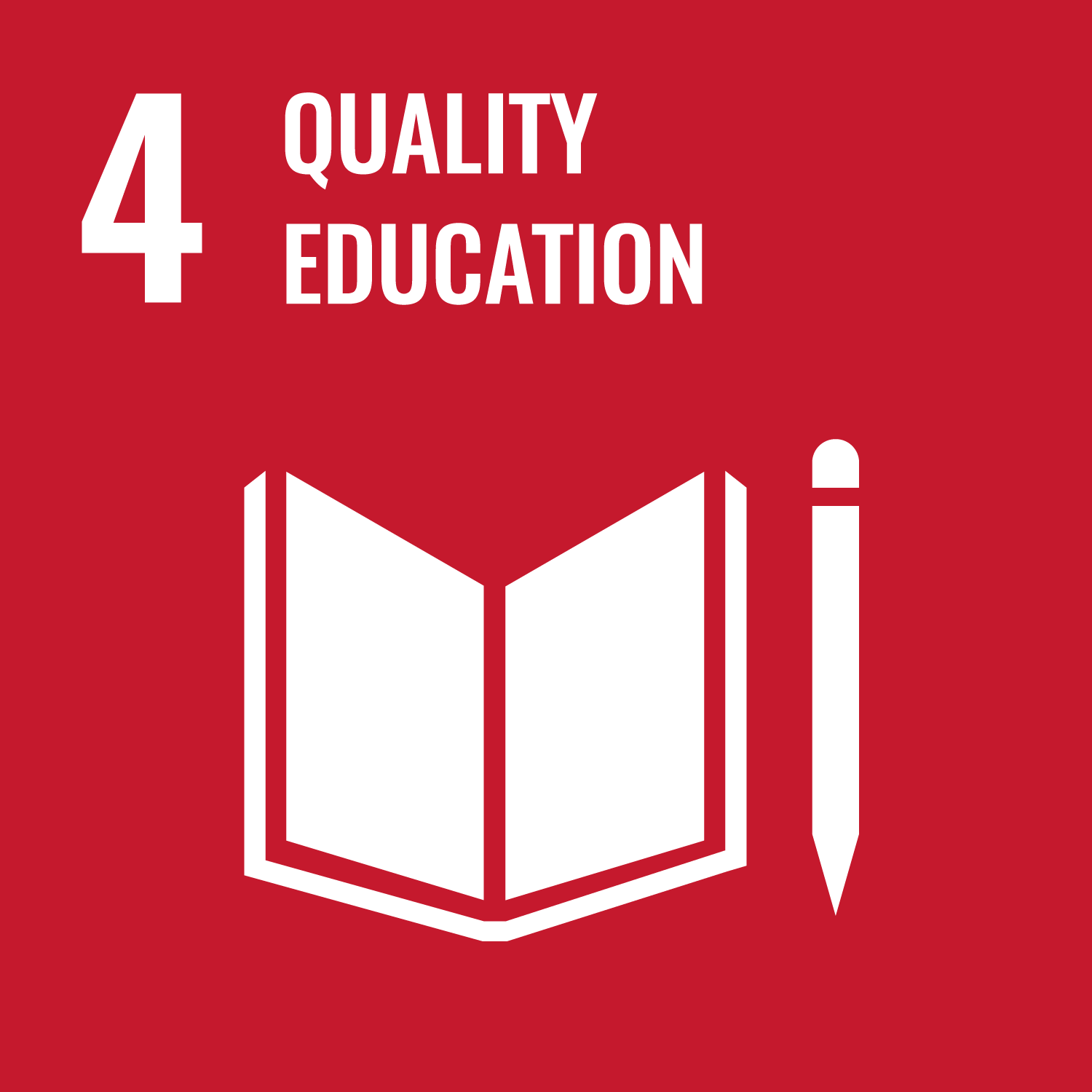4. Quality education
 Data for the indicator 4.1. Research on early years and lifelong learning education (4.1.1 Quality Education: paper views, 4.1.2 Quality Education: CiteScore, and 4.1.3 Quality Education: publications) is being collected via Scopus.
Data for the indicator 4.1. Research on early years and lifelong learning education (4.1.1 Quality Education: paper views, 4.1.2 Quality Education: CiteScore, and 4.1.3 Quality Education: publications) is being collected via Scopus.
4.2 Proportion of graduates with teaching qualification
4.2.1 Proportion of graduates with relevant qualification for teaching
- Graduate only: 468 / 4722 = 9.91%
- All levels: 558 / 5212 = 10.7%
Departments counted: Department of Education and Social Work; Department of Educational Sciences and Early Childhood Education. It should be noted that other Departments' graduates are able to work on secondary education schools, e.g. teaching biology, physics, etc.
4.3 Lifelong learning measures
4.3.1 Public resources (lifelong learning)
-- ΚΕΔΙΒΙΜ / Ακροατής φοιτητής / Μέριμνα βιβλιοθήκης για εξωτερικούς χρήστες (ανοικτή πρόσβαση) / OpenCourses
4.3.2 Public events (lifelong learning)
(Συνεδριακό;)
4.3.3 Vocational training events (lifelong learning)
The University operates the Lifelong Learning Center – University of Patras, which offers several courses for vocational training. It was established in 2018 with the main purpose to design, organize and operate lifelong training programs in a wide range of fields as technology, administration, health, humanities, education, art etc. Distance and blended learning are the main methods for the programs implementation and the Center is always looking for new attractive methods and approaches for the improvement of adults education, training and employment. The Center provides both free and paid courses. Indicative courses:
- Human rights and sexuality education
- Environment, viability and sustainable development: applications in education
- Training Farmers and Producers in Cutting Edge Technologies in the Agricultural Sector. Digital Transformation and Agricultural Production (SMARTeDU)
Further, the University operates the Auditor of University Courses. Citizens who wish to do so, have the opportunity to attend university courses of their choice from those offered by Departments. They receive from the Secretariat of the Department a card to admit specific courses, for a specific period. They do not participate in exams or in laboratory, clinical or tutorial exercises, and they receive a certificate of attendance at the end of each semester.
4.3.4 Education outreach activities beyond campus
(Τμήματα,This Δημόσιες/Διεθνείςis Σχέσεις)
--The ΠρογράμματαLaboratory γιαof Ρομά;Pedagogical ΕθελοντικέςResearch ομάδες;
The Children's Festival is organized by the students of Department of Educational Science and Early Childhood Education of the University of Patras in collaboration with the teachers of the Department. Every year, at the end of spring and for one week, about 2000 children of preschool age visit the Children's Festival, together with their teachers or parents, in order to participate in creative activities and educational orientation workshops, which take place in the premises of the Department. See more at https://childrenfestival.gr/en/timeline/.
4.3.5 Lifelong learning access policy
The University prescribes in the Internal Regulations (latest version published on the Govenrment's Gazette, II, 5468, 14/09/2023) explicitly that all of its activity is governed by the following principles:
2. The operation of the University of Patras is supported to a set of values, which are based on the principles of freedom of teaching and research, free expression and circulation of ideas, respect of the rights of the members of the University Community and of society as a whole, of justice, of meritocracy, transparency, accountability, equality, as well as on the principle of the cooperation of every institution of the University Community in the context of compliance with the Constitution, the Laws and Regulations. Any discrimination, which is related with color, gender, sexual orientation, racial, national or ethnic origin, age, religion or ideology, is considered impermissible.
(Article 3: Mission and Targets)
4.4 Proportion of first-generation students
4.4.1 Proportion of first-generation students
This information is not available.
